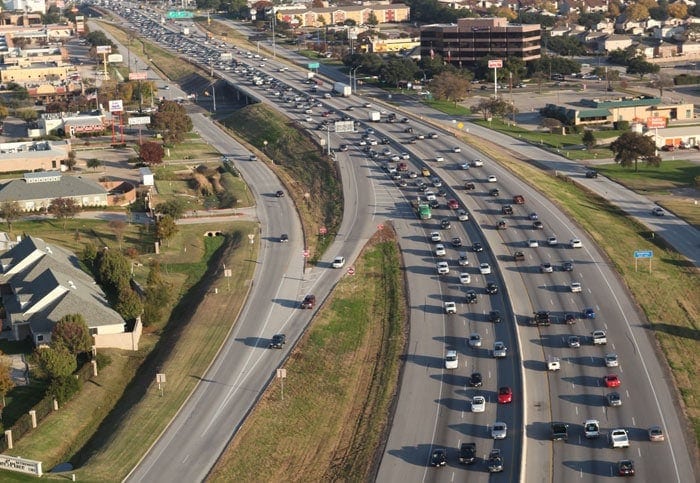Each project and asset is legally independent and has its own managers.
North Tarrant Express, TX
The North Tarrant Express (NTE) is a pioneering transportation solution developed to meet the growing demand for more reliable travel options in the Dallas-Fort Worth region.
Through innovative design and public-private partnerships, Ferrovial has helped to enhance mobility, ease congestion, and foster economic development.
About the Project
Ferrovial-led consortium, NTE Mobility Partners, partnered with the state of Texas to design, build, finance, and operate the North Tarrant Express. The project includes express lanes running alongside general-purpose lanes, providing drivers with a choice between a free route and a dynamically priced, faster-moving option. This major infrastructure investment transformed 13.3 miles of existing highway into a more efficient, reliable transportation corridor.
The success of the NTE project led to the development of the LBJ Express and NTE 35W Express, making up the TEXpress Lanes network in North Texas.
Impact of the project
$6.2 billion
in Economic Output
32,000
FTE Job-Years Created
$4.9 billion
in value for travelers and communities
Key Features of the North Tarrant Express
- Express Lanes: 13.3 miles of dynamically tolled lanes, ensuring a faster travel option even during peak hours.
- Improved Connectivity: Enhanced links to key business and residential areas, fostering regional growth.
- Modern Design: Reconstructed bridges, interchanges, and added lanes ensure smoother traffic flow and improved safety.
- Environmental Impact: The project has been completed with a focus on sustainability, including measures to reduce emissions and protect local ecosystems.
Community Benefits
The North Tarrant Express is more than just a roadway; it’s a vital lifeline for North Texas communities. Throughout construction, the project created thousands of jobs and stimulated local businesses. Now, completed and fully operational, the express lanes contribute to long-term economic growth by improving access to businesses, retail centers, and educational institutions.
We are also committed to giving back to the community. The NTE project includes ongoing community outreach programs, such as support for local schools, environmental initiatives, and safety awareness campaigns.
A Public-Private Partnership with the State of Texas
The North Tarrant Express is a testament to the power of public-private partnerships (P3). By leveraging private sector expertise and resources, the NTE project was delivered on time and on budget, with minimal taxpayer investment. The P3 model ensures that the private sector is responsible for the long-term operation and maintenance of the express lanes, providing the public with a high-quality, reliable infrastructure solution.


